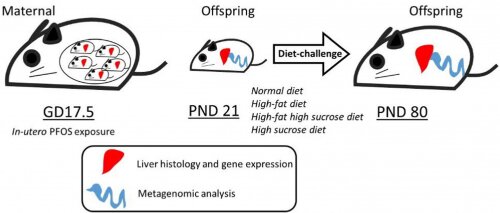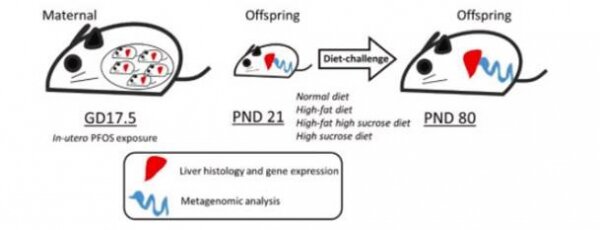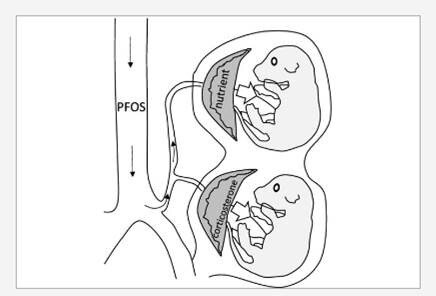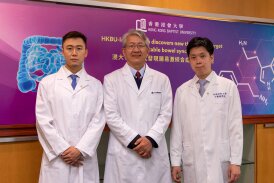
Non-communicable diseases (NCDs) are on the rise around the world. Diabetes is a leading cause of retinopathy, hypertension, and kidney failure, affecting more than 380 million people worldwide. Globally, diabetes alone costs the healthcare system USD 1.31 trillion. A collaborative research led by Professor Chris Wong, Department of Biology at the Hong Kong Baptist University (HKBU), has discovered that early exposure to pollutants during pregnancy increases the risk of metabolic dysfunction in the offspring.
According to the previous and current data, in-utero exposure to perfluorooctanesulfonic acid (PFOS, a man-made fluorosurfactant) disrupted maternal and intrauterine metabolism. The exposure led to a significant reduction in placental nutrient transport and fetal weight. Furthermore, the offspring showed significant changes in liver metabolism and gut microbe development, resulting in inefficient fat metabolism and an increased risk of hepatic steatosis. Collectively, the studies showed the effect of environmental pollutant exposure on the perturbation of the intrauterine environment, thereby increasing disease susceptibility.
By examining the changes in hepatic metabolic gene expression and gut microbiota of offspring exposed to PFOS in-utero, the research led by Prof Wong reveals that fetal exposure to environmental pollutants increases susceptibility to metabolic syndromes later in life. By completing this study, it will be possible to gain a more in-depth understanding of how environmental pollution influences NCD development.
The results have been published in the Journals: Chemosphere “Hepatic metabolism gene expression and gut microbes in offspring, subjected to in-utero PFOS exposure and postnatal diet challenges”; Environmental Pollution “Characterization of PFOS Toxicity on In-vivo and Ex-vivo Mouse Pancreatic Islets”; and Environmental Science and Technology “Effects of in utero exposure to perfluorooctane sulfonate (PFOS) on placental functions”.
Contact Our Researcher
DEPARTMENT OF BIOLOGY
Related Publications
- Hepatic metabolism gene expression and gut microbes in offspring, subjected to in-utero PFOS exposure and postnatal diet challenges (2022) Chemosphere Volume 308, Part 1 https://doi.org/10.1016/j.chemosphere.2022.136196
- Characterization of PFOS Toxicity on In-vivo and Ex-vivo Mouse Pancreatic Islets (2021)Environmental Pollution Volume 289 https://doi.org/10.1016/j.envpol.2021.117857
- Effects of in utero exposure to perfluorooctane sulfonate (PFOS) on placental functions (2020)Environmental Science and Technology https://doi.org/10.1021/acs.est.0c06569
上一则消息
10.01.2023
下一则新闻
06.01.2023








